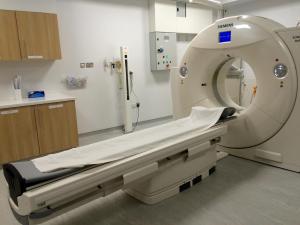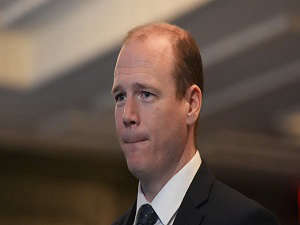
There are calls for more to be done, to help patients here access treatment more quickly.
A third of patients are waiting too long for urgent cancer treatment to begin in Northern Ireland, official figures show.
Targets for waiting times have again been missed and campaigners said efforts to encourage early diagnosis had been compromised.
Last September 64% of patients with an urgent GP referral for suspected cancer started their first treatment within 62 days, down from 70% in July.
The target is 95% and all health trusts missed it for the last quarter, statistics from the Department of Health showed.
Roisin Foster, chief executive of Cancer Focus Northern Ireland, said: "Our message that early diagnosis and treatment saves lives is being compromised by these very worrying statistics."
The percentage of patients first seen within 14 days following an urgent referral for suspect breast cancer rose from 85% in July to 96% in September.
But Ms Foster said the continuing failure to meet targets for patients awaiting treatment was a major concern.
"We need targeted work to reduce cancer patient waiting times immediately, to lower patient anxiety and the fear that their cancer is progressing while they wait.
"We know that our health trusts are under extreme pressure.
"Waiting times have already been addressed as part of the Bengoa report and we want to see those recommendations implemented as soon as possible. For many cancer patients time is not a luxury they can afford."
The Bengoa report was commissioned by ministers seeking advice on how to improve services, cut waiting lists and care for an ageing population. It said an increased number of emergency or unplanned but urgent admissions affected hospitals' ability to deal with elective or planned care, meaning longer waiting times as priority was given to urgent care.
Alliance Assembly member Paula Bradshaw called for a cancer strategy and a waiting list plan as well as a long-term shift towards primary care which would reduce referrals.
She added: "We heard at the start of this term there would be a joined-up approach and the minister would work together for the common good. What we actually have is delay and miscommunication. This comes at a real human cost."
mfl
Page 2: 15:10
A statement from the Patient and Client Council said it was concerned and disappointed.
"The health service needs to ensure not only timely treatment but also accurate information is provided to patients on when they will receive that treatment."


 Kneecap announce new song ahead of headline performance at London’s Wide Awake
Kneecap announce new song ahead of headline performance at London’s Wide Awake
 Gordon Lyons to attend first GAA match as Stormont Communities Minister
Gordon Lyons to attend first GAA match as Stormont Communities Minister
 Fresh appeal over 1973 murder of 18-year-old whose body was found in quarry
Fresh appeal over 1973 murder of 18-year-old whose body was found in quarry
 Kneecap say terror charge is ‘carnival of distraction’ and ‘political policing’
Kneecap say terror charge is ‘carnival of distraction’ and ‘political policing’
 Woman assaulted while jogging in West Belfast
Woman assaulted while jogging in West Belfast